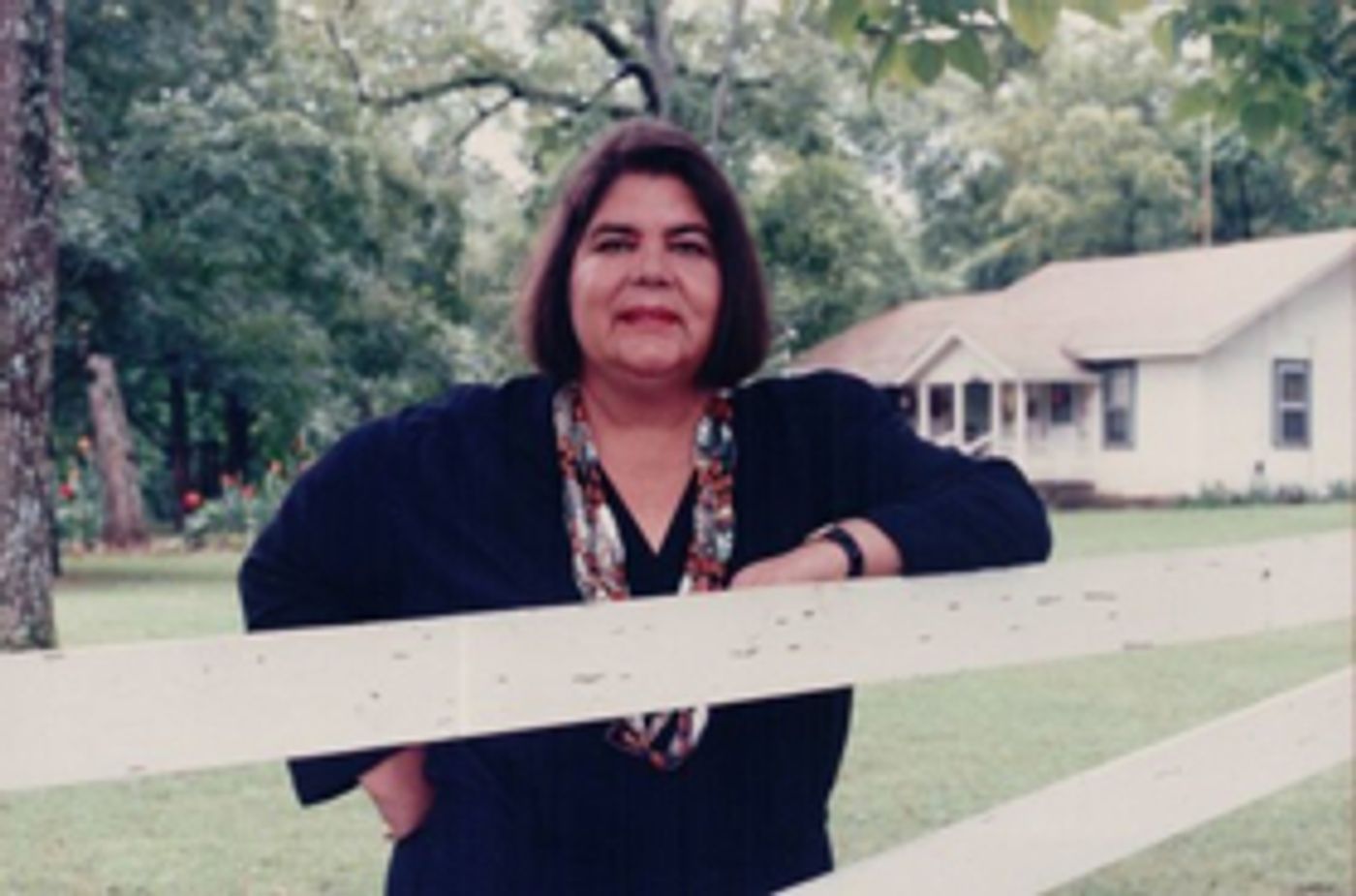Review: MANKILLER Eulogizes The Proud Life And Turbulent Times Of A Cherokee Hero

Oftentimes, heroism is circumstantial, the convergence of a moment in time that requires the ascendance of a soul capable of facing a unique or daunting challenge. Such are the people in our history who emerged from modest means to achieve greatness. Such was the case of Wilma Mankiller. "I'm a pretty ordinary person that just happened to be given an opportunity to do extraordinary things in my life." That's how this giant among feminists and the Cherokee Nation's first woman Principal Chief, saw her life and her role as an agent of change.
It is her journey from poverty to international stature as a leader in community empowerment and self-determination that is the focus of the documentary, MANKILLER.
Gale Anne Hurd, a highly respected film and television producer, and Valerie Red-Horse, a prominent entrepreneur and investment banker, have collaborated to celebrate the life and accomplishments of this remarkable leader, who Gloria Steinem claimed ~ by virtue of her value, passion and character ~ "in a just society...would have been elected President."
However, universal acceptance of a female as leader of the Nation, even in a historically matriarchal society, was hardly forthcoming.
The accomplishment of this film is in its studied, sobering, and inspiring account of how Wilma Mankiller overcame the apprehension and resistance of her people and won not only their hearts and minds but also the respect of the non-tribal world. It records the journey of a child displaced from her native land to a woman determined to reclaim that land and revive the pride of her people ~ the lessons that she learned along the way and the legacy that she left behind.
Hurd and Red-Horse have skillfully weaved together footage of the turbulent times that tried Wilma's and her people's souls and the testimonials of those who witnessed her achievements. In due course, the history of Wilma Mankiller is the history of the Cherokee Nation and inevitably a verdict on the history of the United States.
Just as Cherokees had endured the devastating effects of treaty violations in the 1830's (the forced relocations and the "trail of tears" that resulted from the Indian Removal Act 1830), history repeated itself in 1956. The Bureau of Indian Affairs' Indian Relocation Program moved the Mankiller family from their Cherokee land in Oklahoma to the mean streets of San Francisco's Tenderloin District and Hunters Point. Wilma was eleven. She and her family were strangers in a strange land, encountering new sounds and mechanized inventions, totally unprepared for their new life. "The life they anticipated was not the life they found."
She understood that the poverty she experienced in the Bay Area (of people isolated and disconnected) was unlike the "community of poverty" of her Oklahoma home where, while lacking household amenities, the people, of necessity, were bound by a shared history and culture and were irrevocably connected with the land.
The seeds of her larger vision ~ the imperative of community self-governance and self-determination ~ grew from this insight and were then nourished by fortuitous encounters with Dolores Huerta and Cesar Chavez and her immersion in the civil rights activism of the '60's.
The film records her trail (not one of tears but now one of resolve) back to Oklahoma, her remarkable rise to power and influence, and the events that resulted in the economic and political revival of the Cherokee Nation: the tender and mutually supportive partnership with her second husband and true soul mate, Charlie Soap; the Bell Waterline Project that demonstrated the efficacy and power of community self-reliance and legitimized her as a political force; the rigors of her elections and the challenges of managing a male-dominated political structure; the grand successes in developing community health care, college scholarships, and medical training; the turbulent debate about gaming as an economic engine; the triumph of community self-governance.
The voice of Wilma Mankiller, silenced by her death in 2010, resounds throughout the documentary, punctuating the film with words of wisdom and exhortations about the vital importance of economic self-determination and empowerment as the pathway to political empowerment and sustainability.
The narrative suggests that "Mankiller" translates, quite appropriately, to "warrior." In her autobiography, Mankiller: A Chief and Her People, co-authored with Michael Wallis, she notes that her name, Asgaya-dihi, "was originally not a name at all, but a rank or title used only after one had earned the right to it. To call someone Mankiller would have been like calling another person Major or Captain." Whether Warrior, Major, or Chief, Mankiller earned the right to the honors bestowed upon her.
Therefore, to watch MANKILLER is to watch a primer on the essential elements of impactful leadership and to be inspired by the selflessness and passion of a true hero. In times such as these, it is a documentary tribute very worth the watching and an implicit call for others to emulate the standards she set.
MANKILLER is one of the featured films in this year's Sedona International Film Festival (February 24th through March 4th).
Produced by Red-Horse Native Productions and Valhalla Entertainment in association with Vision Maker Media
Photo credit to Vision Maker Media
Reader Reviews
Videos

